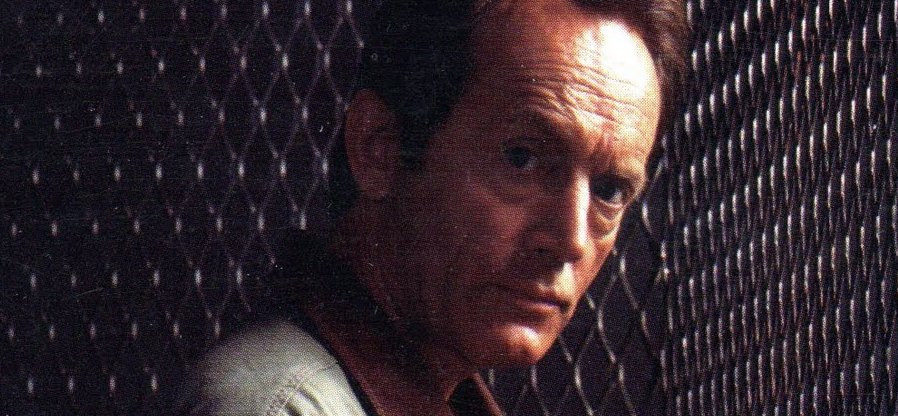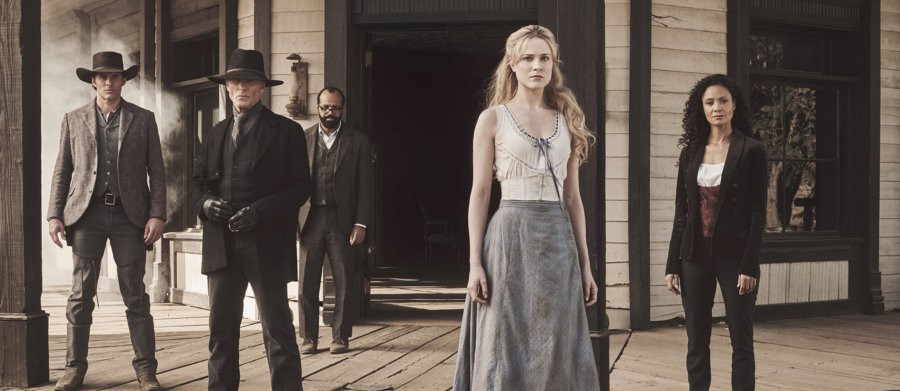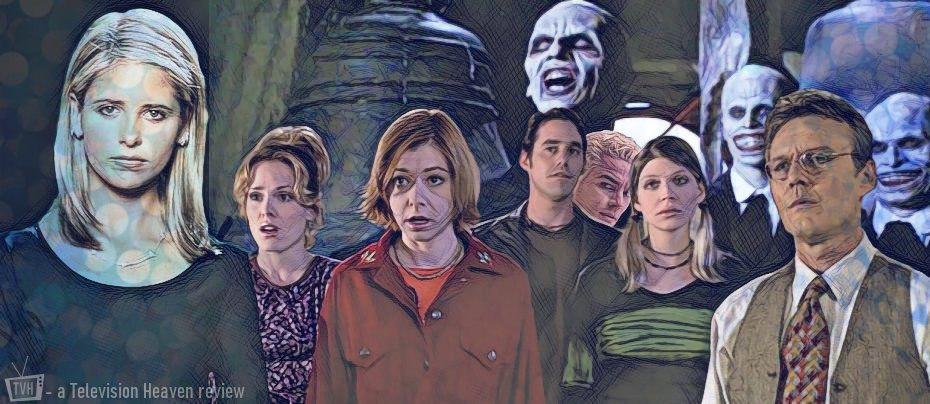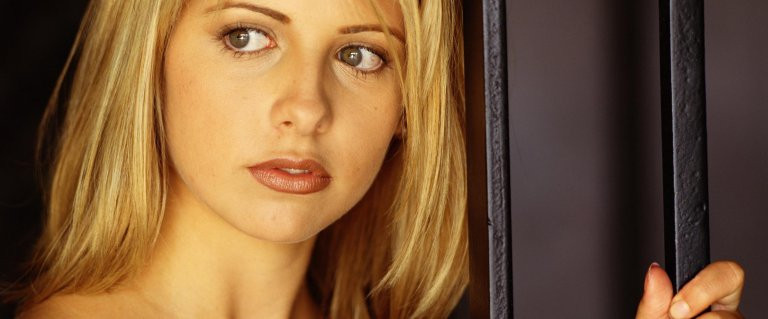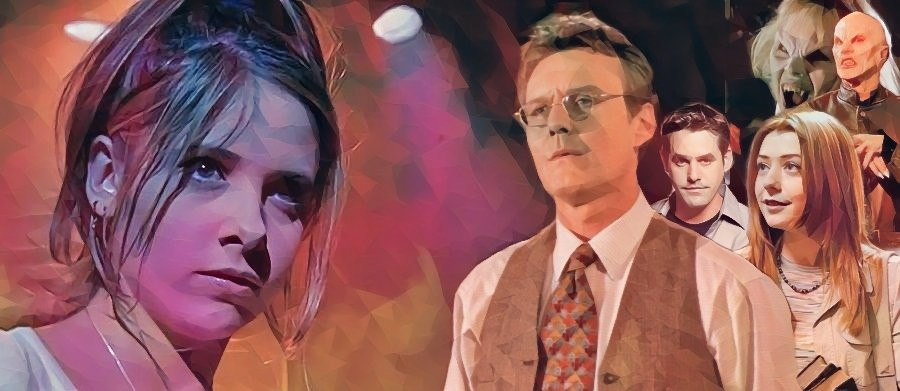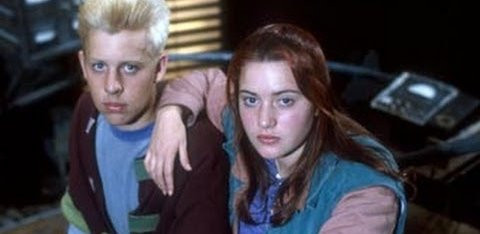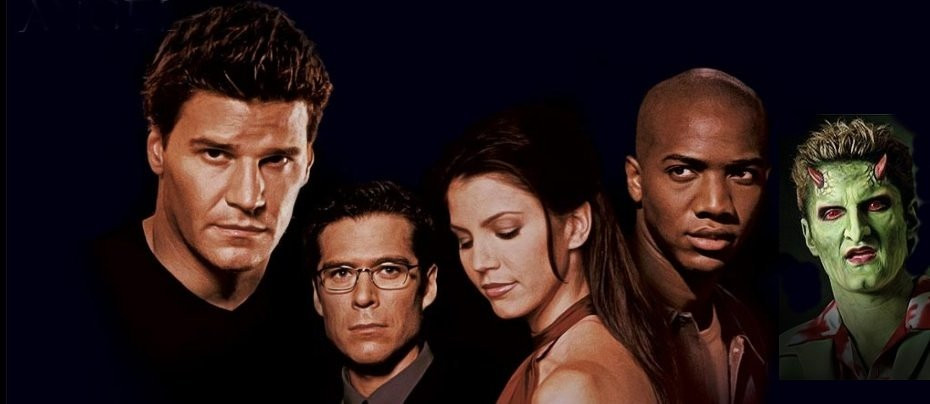
Angel - Season 2
human drama, criminal investigation, mythic battles, outright horror and sheer, unashamed camp
Angel Season Two (2000-2001) reviewed by Daniel Tessier
Angel's second season opens with a bold statement of a new, perfected style. A mysterious figure lays out the dark yet desirable nature of the series' supernaturally-charged Los Angeles - “The glamour and the grit, the big breaks and heartaches, the sweet young lovers and the nasty, ugly, hairy fiends...” Only this isn't our heroic yet troubled vampire speaking, nor one of his allies or enemies from the mythically-charged ending to the first season. No, it's a glitzy green demon who runs a karaoke bar.
With that, Angel finally sets out what kind of series it's going to be: one that mixes human drama, criminal investigation, mythic battles, outright horror and sheer, unashamed camp. The first episode of the season, “Judgment,” sets the tone perfectly. The core story is fairly mundane, by Angel's standards: the vampire with a soul kills a vicious-looking demon, only to discover that the creature was protecting a young woman (Justina Machado – Six Feet Under) who is pregnant with a mystical saviour. Angel must then step in to take the monster's place in a battle for her right to sanctuary. In amongst that, though, large swathes of the episode take place at Caritas, the supernatural karaoke bar run by the aforementioned green demon – and Angel has to sing “Mandy” by Barry Manilow to further his mission.
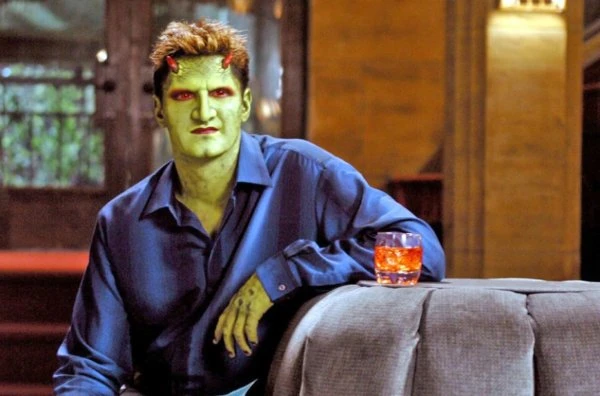
The addition of Caritas, and its mysterious Host, feels like Angel finally embracing its own unique identity. The late Andy Hallett gives a note-perfect performance, naturally, as the Host, under thick green make-up and in some of the most remarkable suits ever seen on television. This crooning demon is anagogic – able to read people's auras, souls and destinies – but only when they sing. So repeatedly, Angel and his company have to attend Caritas, knock back some courage and get up on stage to help further a case. It's the perfect way to offset the increasingly dark direction the series was otherwise moving in – and believe me, this season gets dark.
Interestingly, Joss Whedon had only a limited role in this season. He directed one episode, storylined two, but wrote no scripts. It was his fellow executive producer, David Greenwalt, who acted as showrunner, with Tim Minear (The X-Files, American Horror Story, Feud) as head writer. Mere Smith (Rome) acted as script editor, also contributing her own scripts, with Shawn Ryan (The Shield, The Unit) as producer and occasional writer. Occasional freelance scripts came from established Buffy writers, but it was this team who steered Angel in its most important, perhaps best series.
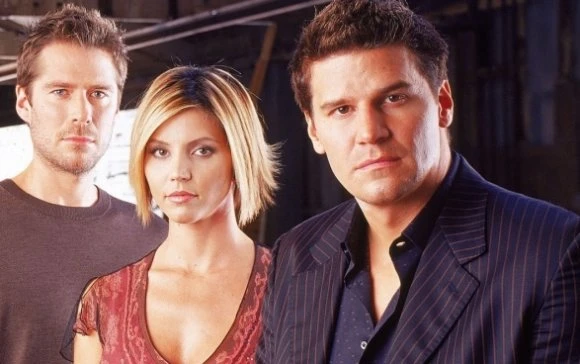
In front of the camera, the majority of the players remained, with David Boreanaz leading as Angel and Charisma Carpenter as Cordelia, now both with a clearer mission in place. Angel, thanks to the Shanshu prophecy, knew that he had a destiny and a chance at redemption, while Cordelia, thanks to her brutal experiences of overwhelming visions at the previous season's finale, was a more proactive, more compassionate character. More surprising was Alexis Denisof as Wesley, who began the season just as stuffy and awkward as he was before, but who developed through the course of the run to become a more confident, more commanding figure as he gained more experience. Wesley and Cordelia had by now moved far past any romantic interest in each other and became almost sibling-like in their squabbling.
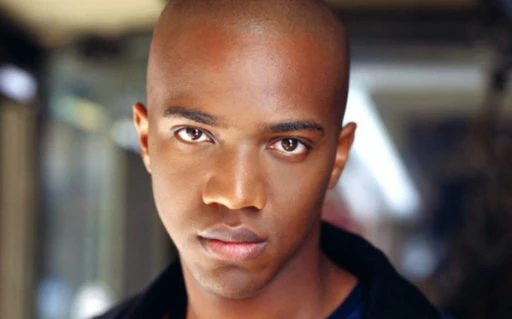
As Gunn, J. August Richards acted as the muscle for the team but hinted at hidden depths. His character arc is among the most interesting, as he moves from being an uneasy ally in the beginnings of the season, to becoming a fully-fledged member of Angel Investigations, slowly leaving his past behind as he goes. The three human members of the team end up barely recognisable when the series ends, and this season sets up much of their development. With Lorne as the unofficial fifth member of the team, the series is set up for success – but it's a very bumpy ride.
As with the first season, there's a parallel storyline running, with flashbacks to Angel's past teaching us more about our hero. The writers finally seem to have realised that there's a lot more of the vampire's past to explore after he regained his soul, and that the path to redemption is not a smooth one at all. Episode 2.2, “Are You Now, or Have You Ever Been?” is a standout story that both sets up an important element of the ongoing plot and adds fascinating background to Angel.
In the present day, the team investigates an abandoned hotel that has been the site of many murders and suicides through its history. In 1952, Angel checks into the hotel, one of many residents passing through with secrets they don't want to share. Among the unsavoury characters is Judy (Melissa Marsala), on the run from a detective, who Angel decides to shelter. Meanwhile, something in the hotel is praying on the residents' paranoia. A suicide is construed as murder, the criminal Judy is accused, until her fear leads her to Angel's stash of blood. Driven by terror and paranoia, the residents form a mob and hang him.
Naturally, he's fine – you can't kill a vampire by hanging – but the event is enough to allow the demon inhabiting the hotel - a joyfully sinister Tony Amendola (Stargate SG-1, Once Upon a Time) – to fully materialise so it can feed on the trauma of the residents. Embittered and betrayed, Angel simply says, “Take them all,” and leaves. It's a fantastic setting, with a great central performance by Boreanaz, who shines when getting to show aspects of Angel's character beyond simple good and evil. A powerful story taking in conformity, otherness and discrimination, it's one of Angel's finest episodes. In the present day, Angel and co. return to the Hyperion Hotel to defeat the demon, allowing Angel to finally make some amends with Judy and his actions in the past. Plus, the building is still sitting empty, providing an expansive replacement for the group's destroyed headquarters.
On the opposite side to our heroes remains Wolfram and Hart, the scope and reach of which we only now begin to glimpse. As the season progresses, we see the law firm has departments in higher and lower dimensions, and that in another world altogether, the ancient forces the Wolf, the Ram and the Hart still pull the strings. Meanwhile on the earthly plain, the rivalry between amoral lawyers Lilah (Stephanie Romanov) and Lindsay (Christian Kane) continues, with Holland Manners (Sam Anderson) calling the shots. However, there's a new, unpredictable element in the mix...
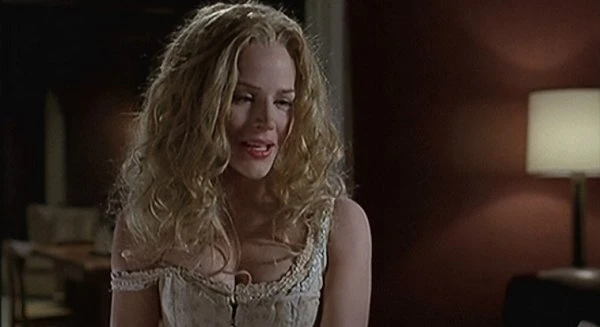
Julie Benz (Dexter, Defiance, Hawaii Five-O) joins the cast in a recurring role as Darla, Angel's own sire and the closest thing he had to love before he regained his soul. Darla was, frankly, a bit of a thin character in Buffy, and it didn't hurt the show to kill her off. Resurrecting her on Angel, though, was a masterstroke. As the resurrected Darla, Benz is finally given some layered material to work with, and she is exceptional, portraying a woman at turns vulnerable and terrifying. The improved versions of Angel and Darla, now far beyond the slim characterisations in Buffy's first season, give Boreanaz and Benz something tangible to work with, and they share great chemistry.
The Angel-Darla arc forms the spine of the season. To begin with, Angel is unaware that Darla had been resurrected, but begins to experience powerful, erotic dreams featuring her, in reality shared experiences made possible by their ancient bond. Wolfram and Hart's long game is revealed: they don't want Angel dead, as they know he is a key player in the coming apocalypse. They want him evil, and the plan is that Darla's presence will be enough to drive him back to the dark side, one way or another.
2.5, “Dear Boy,” steps up the plan to the next level. Darla begins to reveal her existence to him, first pretending to be an innocent woman (with some help from Wolfram and Hart and some fake family credentials) in an attempt to confuse and discredit him. With the combination of this and his exhaustion from his dreams, Angel fears he is losing his sanity. Eventually, of course, he confronts Darla, who reverts to her true personality and tries to tempt Angel back to his bloodthirsty and hedonistic ways. When he rejects her, she storms off – into the sunlight, revealing that the resurrection has brought her back to life fully, as a human.

Darla's own situation has some considerable complications, however. Lindsay, as her handler, spends more and more time with her, rapidly falling in love with her, and she is keen to manipulate him. This only serves to increase his hatred of Angel, already pretty serious since the vampire lopped off his hand in the preceding season finale. What's more, now that she's human again, Darla once again has a soul, and the burden of her past begins to take its toll on her sanity. 2.7, the eponymously titled “Darla,” is one of the strongest episodes of the series, giving us a whistle-stop tour of her four centuries of existence and tortured relationship with Angel. Beginning in the Virginia Colony in 1609, a young prostitute lies dying of syphilis, until a priest comes, offering to save her. The priest is none other than the Master (a returning Mark Metcalf), already ancient and demonic looking. The Master transforms the woman, and even gives her the name Darla (Angel later discovering that he never even knew her real name).
We follow Darla through the centuries, as she discovers Angel, betrays the Master, forms a pack with Drusilla (Juliet Landau) and Spike (James Marsters), and finally loses Angel to the curse of his soul. The episode clears up a few confusing elements of the two vampires' shared backstory, and also ties in heavily with Buffy 5.7, “Fool for Love,” showing several of Spike's misadventures from the very different point-of-view of Darla and Angel. In the present, the suffering Darla begs Angel to turn her back into a vampire – which he naturally refuses.
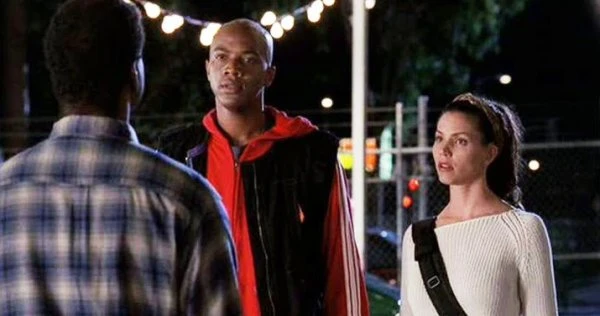
In the meantime, it's not only been Darla keeping the team busy. There have been several standalone episodes focusing on other threats and mysteries. 2.3, “First Impressions,” deals with Gunn's uneasy integration into Angel Investigations, as Cordelia experiences a vision of him in peril and decides to make his safety her mission. It's a solid episode that explores just how different Gunn and his street level existence is to the others on the team, and also how much he is beginning to change as he works with them.
2.4, “Untouched,” is a strong episode that sees Angel take in a young woman named Bethany, who has arrived in the city and left a trail of death and destruction in her wake. It turns out that she is one of the occasional superhumans the series brings in, and her telekinetic abilities are threatening to go full Carrie. Daisy McCrackin (Halloween: Resurrection) is excellent as Bethany in her first screen role, portraying the damaged, fragile but extremely powerful girl with depth and realism. Romanov gives a characteristically strong performance as Lilah, manipulating Bethany for Wolfram and Hart's own purposes. Tackling thorny topics such as exploitation and familial abuse, it's a strong episode, and the only time Whedon directs another writer's script for the franchise.
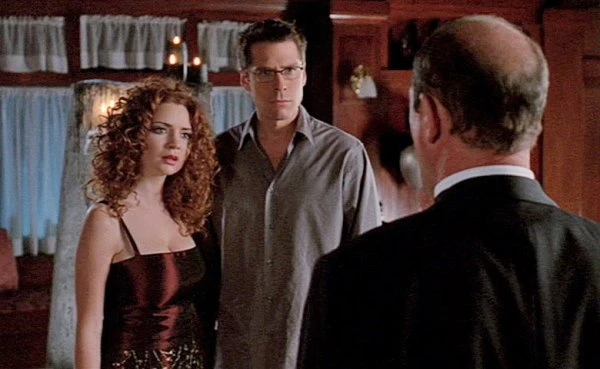
2.6, “Guise Will Be Guise,” is a great comedy episode that lightly ties into the ongoing story as Angel goes off to meet a mystical swami to help him get Darla out of his head. Art La Fleur (The Practise, Have You Met Miss Jones?) makes for a wonderfully down-to-earth, blokey mystic, who has some real insight into Angel's self-flagellating lifestyle, and it's a shame when he turns out to be an imposter. The real fun, however, is back in L.A, where Wesley is forced to pretend to be Angel when a warlock/crime boss turns up to hire the vampire as a bodyguard for his daughter and won't take no for an answer. Watching Wes try to live up to Angel's taciturn and aggressive reputation is a joy (although it turns out that part of the reason for his hiring is that he is rumoured to be a eunuch). Brigid Brannagh (Runaways, Army Wives) plays the warlock's daughter Virginia Bryce, his planned “virgin” sacrifice, who rapidly falls for Wesley-as-Angel. In spite of the subterfuge, she leaves with him when he saves her life, becoming an occasional recurring character and Wesley's new girlfriend. It's short-lived, but they do work well together, and Cordelia is hugely envious of all the wealthy elite events Wes now gets to attend.
2.8, “The Shroud of Rahmon,” is a fun episode that gives Angel a standalone adventure while still moving on one of the arc plots. In this case, though, it's that of Angel's tumultuous friendship with Detective Kate Lockley (Elizabeth Rohm). This is very much a holdover from the first season, and with Darla now becoming Angel's main focus, the will they/won't they allies-or-enemies plot with Kate seems surplus to requirements. This episode takes a step towards tying it up, with Angel forced to bite Kate in order to fake her death when she stumbles into a demonic crime scene and ends up way over her head. There's some strong material here with Angel and Gunn both going undercover as part of the gang to steal the eponymous shroud, which brings out their repressed hatred and violence, and we get Tony Todd (Candyman) and W. Earl Brown (Deadwood) giving fun guest performances as demon criminals. Primarily the episode serves to up the ante with Kate and push Angel further down the path to darkness, but it have been cut from the season with no real consequence.
The plot with Darla continues to simmer in the background, and the former lovers are drawn to each other still. In 2.9, “The Trial,” Lindsay takes her in, and surprises Angel by telling him exactly where she is and what's happening to her. The spell, it seems, has resurrected Darla exactly as she was when she originally died, syphilis and all. Darla, desperately trying to get sired by any loser vampire she can find, begs Angel to turn her. He continues to refuse, knowing that he will be dooming her and himself, but discovers another option: a series of brutal trials for the right to a second chance at life. Angel runs the horrific gauntlet of battles and tortures – amusingly overseen by an entity in the form of an English valet (Jim Piddock – Mascots, Family Tree). He becomes the first being ever to make it all the way through, but the sorrowful valet informs him that he can do nothing to help – Darla's already had a second chance at life. There cannot be a third.
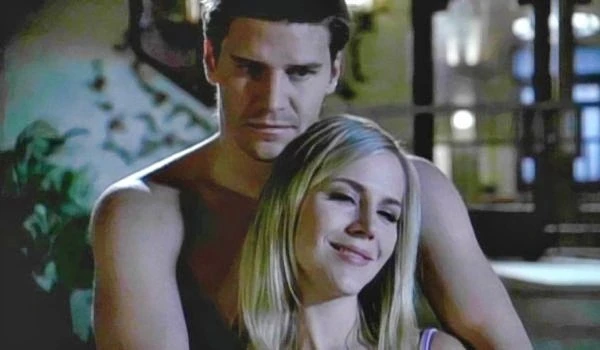
However, Angel and Darla are still owed a life, something that will have huge consequences further down the line. For now, though, Darla, on her last legs, resigns herself to her fate and decides she wants to die as a human being, at Angel's side. It's a rather beautiful end to her story... until Lindsay breaks into her home, accompanied by an assault team and none other than Drusilla, who forces herself on Darla and transforms her back into a vampire. In the following episodes “Reunion” and “Redefinition,” Darla tries to fight her nature but is soon gleefully back to her evil ways, joining forces with Drusilla to wreak carnage across L.A. Wolfram and Hart consider themselves triumphant, but it isn't long before they are violently disabused of any notion of control when the two vampiresses crash a party in Holland's wine cellar. Angel follows them there, but when Holland begs him to save them, he impassively locks them all in and leaves. Darla immediately rips Holland's throat out, leaving only Lindsay and Lilah alive to act as her liaisons between the demonic and human worlds as she plans to take control of L.A.
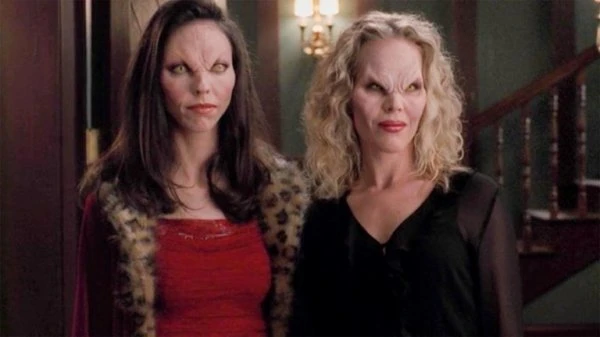
During all this, Angel has become even more obsessed with his former vampire lovers, leaving the rest of the team fighting other evils by themselves. When they discover what he has done to the lawyers, they realise he has stepped over a line which he may never be able to cross back. Wesley, Cordelia and Gunn confront him, swearing to stick with him as they may be “the only thing standing between (him) and true darkness.” Angel agrees and drops his final bombshell: “You're all fired.”
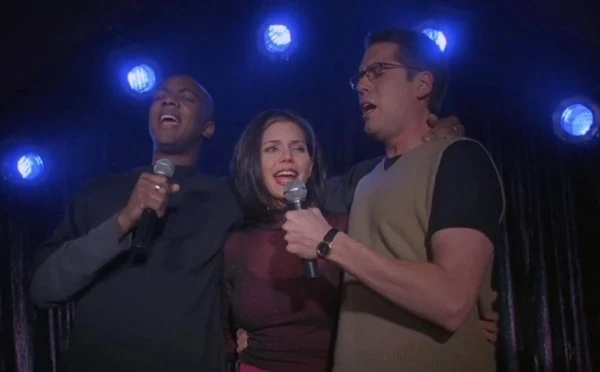
Reeling from this, the three of them seek solace at Caritas, where, after some truly hilariously awful drunken karaoke, the Host and the Powers That Be prod them back on their rightful direction: they continue to fight the good fight as an Angel-less Angel Investigations. Meanwhile, an increasingly frightened Lilah and an increasingly unimpressed Lindsay find themselves in joint control of the Special Projects Division, until one of them can prove their worth. Darla and Drusilla's power drive is cut short in perhaps the most shocking moment of the series, when Angel, having lured them to a secluded spot, emotionlessly sets them both alight. They survive, but are terrified of this new, remorseless version of Angel, who is somehow even more frightening than the joyfully evil Angelus. It's perhaps Broeanaz's best performance in the series, far more unsettling than he's ever been before.
Drusilla goes on to make her final full appearance on Buffy 5.14, “Crush,” while Darla hides out with Lindsay to slowly recover. Angel and former team continue on their respective paths in 2.12, “Blood Money,” a decent enough episode that falls a little flat after the shocking events of “Redefinition.” It introduces Julia Lee (Charmed, Free Ride) to the series as Anne, having changed her name since she appeared on Buffy 3.1 “Anne,” and before that, episode 2.7, “Lie to Me.” The one-time vampire groupie and runaway is now older, wiser and more mature, and running a homeless shelter. She's now a friend of Gunn's, but is investigated by Angel when Wolfram and Hart set up a fundraiser for her shelter – clearly trying to launder money.
2.13, “Happy Anniversary,” is Whedon's only script for the season, and is distinctly average. It's an Outer Limits-esque episode in which a heartbroken scientist (Matt Champagne – The Young and the Restless, I Didn't Do It) almost ends the world when he tries to stop time on his last night with his girlfriend. It's notable mainly for the first direct team-up between Angel and the Host, where the demon breaks through all the vampire's walls and speak about just how desperate he's become. Meanwhile, the new Angel Investigations is going from strength-to-strength under Wesley's leadership.
In the following episode “The Thin Dead Line,” we meet both Anne and Kate again as a force of zombie cops begin indiscriminately attacking people in a rundown neighbourhood. It's an astonishingly unflinching take on police brutality, particularly with regards to people of colour, as exemplified by Gunn and his crew luring out the cops by “walking while black.” It's an action that almost gets them killed, until Wesley steps in to use his white privilege to calm the situation. Unfortunately, this is one instance where that won't work, and he is shot in the gut, an event that's significant in his gradual hardening as a character, but also completes his and Gunn's journey to becoming unlikely best friends. It's actually very even-handed, featuring a brutal drug dealer (Mushond Lee – Sunset Beach, The '60s) who happily goes “back to work” once the threat is over, and Kate's increasing disillusionment at her job as she is unable to make any real difference in the face of so much crime – mundane and otherworldly.
Kate's increasing involvement with the occult – leading to her colleagues referring to her as “Scully,” which is wrong as any fool know – takes its toll on her. However, in 2.16, “Reprise,” the final nail in the coffin is her discovery that Angel is partly responsible for the massacre of the lawyers of Wolfram and Hart. Angel, however, is distracted further as Darla reappears on the scene, as he and she both enter the Wolfram and Hart offices to face one of the firm's demonic Senior Partners. Angel is taken by the Holland – Wolfram and Hart contracts continue long after death – on a tour to the “home office,” to see the very depths of hell from which the firm and all the evil they represent comes. The trip ends back where it started, in L.A, Holland calmly explaining that it is humanity that is true source of the evil Wolfram and Hart wish to cultivate. Finally broken, Angel, ignoring a phone call from a clearly suicidal Kate, finds Darla and takes her to bed.
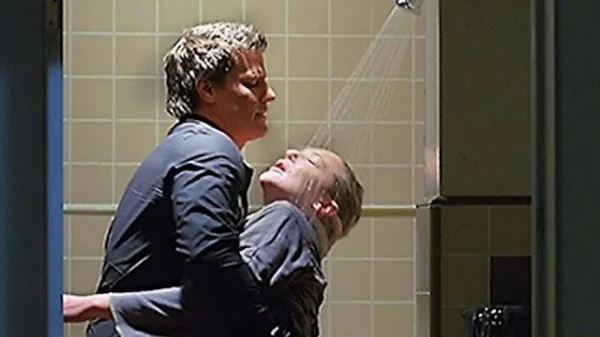
The episode flirts with the viewer, making them think that Angel has once more lost his soul, but in the next episode, “Epiphany,” it's rapidly made clear that a night with Darla hasn't done the trick. Realising that he's reached rock bottom, Angel understands that he has to get himself back on track, and guiltily rushes to find Kate. He manages to revive her after an overdose, but she angrily throws him out. Angel then goes to reunite with his friends. Unfortunately, an extremely jealous Lindsay finds him and tries to kill him for sleeping with Darla; Angel fights him off and smashes his prosthetic hand, adding insult to injury and telling him to be grateful it wasn't the other one. Angel is able to join his friends in the nick of time and rescue them from a group of vicious parasitic demons, but they are not at all welcoming of him. Dejected, he returns to try to mend things with Kate, who it turns out has had her own epiphany: she now believes in a higher power, since she never invited Angel in when he came to save her. Reconciled at last, Kate leaves the police, and the series, while Angel goes cap-in-hand back to his team to ask to join them again – as an employee.
It's also the last we see of Darla for the time being, but she will be back the following season, revealing some huge consequences to her and Angel's actions this year. Without their mutual obsession driving it, the season runs out of steam a little, giving us two more episodes before swinging in a completely different direction for the final stretch. 2.17, “Disharmony,” is a throwaway but fun comedy episode, seeing the ditzy vampire Harmony (Mercedes McNab) arrive in L.A, having finally ditched Spike for good over on Buffy. She looks up Cordelia, her former high school best friend. Unfortunately, no one has bothered to tell Cordy that Harmony has joined the ranks of the undead, and she comes to the mistaken conclusion that Harm's gabbling about “urges” means she's gay. The highlight of the episode is an awkward phone call with Willow (a guest appearance Alyson Hannigan), who has firmly left the closet. No one told Cordy about that, either.
2.18, “Dead End,” feels like a necessary case of housekeeping, finally tying up Lindsay's storyline. Pleased with his work, Wolfram and Hart gift Lindsay with a new hand, only for it to turn out to have a life of its own. After a side trip to Caritas (giving Christian Kane a chance to show off his country crooning skills), the troubled lawyer and the heroic team are forced to join forces to investigate the genuinely horrifying harvesting of organs from the firm's dismissed employees. After the many atrocities he has seen, and committed, this is one step to far for Lindsay, who spits on his promotion to sole head of Special Projects and storms out of the company, citing his “evil hand issues.” It's a pretty solid ending for the character, leaving him and Angel somewhat reconciled, although it's reduced in effectiveness by his later return in the fifth season. It also leaves Lilah as the primary villain going into the third season, as she is now left in charge of Project Angel.
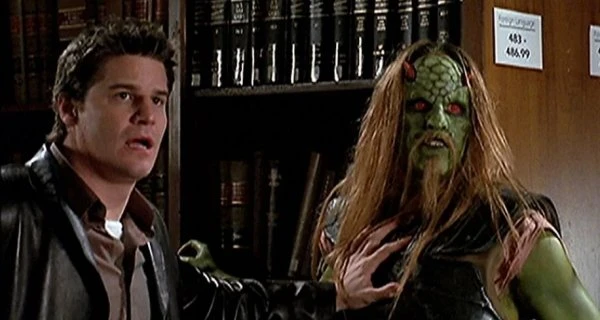
The season ends with a bizarre, four-part story that divided fans on broadcast. The series gives up its procedural pretences and delves headfirst into sword-and-sorcery, in a full-on fantasy adventure. When a brutal demon materialises in town, the team are able to link its appearance to mysterious vanishings over the last few years, and finally to a spellbook capable of opening portals between dimensions. A fearsome demon warrior named Landok (Brody Hutzler – Days of Our Lives, Legally Blonde) appears, offering to help hunt the monster. He appears to be of the same species as the Host – whose name is revealed as Krevlornswath of the Deathwok Clan (Lorne for short).
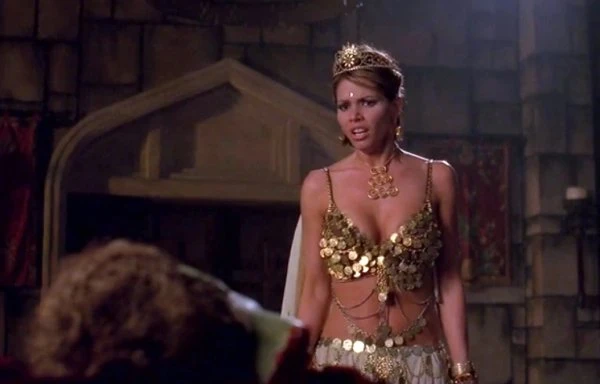
The demon is defeated, but when Landok returns home, Cordelia is swept along, arriving on the Host's homeworld of Pylea. The others naturally follow to this strange realm, where humans are treated as cattle, and a variety of colourful demon races live a medieval lifestyle. There follows an over-the-top, decidedly silly adventure, but one that does strong work exploring each of the main characters' developing personalities. Cordy, having made one last, humiliating stab at her acting career, is thrown from rags to riches as she is first enslaved and then made a princess when her visions manifest in the other world. She has the opportunity to pass on her curse to the Groosalug – a handsome and adorable half-human warrior, played by the almost cartoonishly cute Mark Lutz (Power Play, Victor). Even though she could finally be rid of her increasingly debilitating visions, and do so by hooking up with a handsome warrior, Cordy refuses, knowing that the visions give her purpose and enable her to help others.
Gunn, having seen his former crew whittled down by vampires while he has been working with Angel Investigations, finds new purpose in Pylea when he helps the downtrodden humans fight back against their oppressors. Wesley, now officially the leader of the team, finds himself acting as general to the rebels, and is both impressive and frighteningly pragmatic in the role. Lorne, completing his move to fully-fledged member of the team, is petrified of going home. Having been shunned due to his abhorrence of violence, and because he was the only being in his world who could hear music, he was overjoyed to be thrown into the human world. Facing his judgmental, close-minded rural family is the worst thing he can think of. It's a none-too-subtle allegory for coming out and moving to the big city where you might be accepted, but it really works, thanks to a heartfelt performance by Hallett.
It's Angel who is put through the ringer the most. Pylea, at first glance, suits him down to the ground: a world of heroes vs. monsters, where he can be a champion without any of the pesky moral complications that life on Earth throw up. Not only that, but the otherworldly physics of Pylea affect vampires in odd ways, dividing them more sharply between their human and vampire halves. Angel can walk freely beneath in sunlight here, and can even look at his own reflection (“Does my hair always look like that? Was nobody going to tell me?”) However, the flip side is that when he fights and switches to vampire mode, he transforms into the purest expression of the demon within – a huge, horned, green monster that fans have nicknamed the AngelBeast. In this form, he is completely out of control, and is faced with a choice: staying in Pylea would make him both hero and monster far more starkly than back home.

One final, important element is introduced in this four-part story. Just as Gunn first appeared in the closing episodes of the first season, Winifred Burkle appears in the last story of the second, to complete the main line-up of regulars for the third. Tiny Texan Fred is played by Amy Acker, then little-known but since a familiar face for Alias, Happy Town, Person of Interest and Suits, as well being one of Whedon's perennial favourites for roles in Dollhouse, Marvel's Agents of Shield and The Cabin in the Woods. The brilliant and beautiful Fred was an up-and-coming physicist until she was swept into Pylea and has spent the last five years living in a cave, evading the demons who would enslave her and trying to work out a way to open a portal home from mathematical first principles. Fred is an immediate hit – adorable, formidable and not quite right-in-the-head, with Acker giving a wonderful performance. She has some good chemistry with Boreanaz (Fred understandably falls for Angel when he swoops in to rescue her from some monsters) and is the final vital part of the increasingly unlikely team.
The sudden shift to high fantasy for the final few episodes got a mixed response, but for sheer unexpected strangeness, verve, humour and sheer camp colour, it's hard to beat. Plus, it features Whedon's one-and-only appearance on screen in the franchise: as Numfar the dancing demon. After a season of such brutal emotional stakes, to end with an adventure like this is a little jarring, but it works. Together, the elements of season two make it feel that Angel is finally stepping out from Buffy's shadow and becoming its own thing...
and then Willow turns up again to tell Angel that Buffy's dead.
Published on December 1st, 2022. Written by Daniel Tessier for Television Heaven.




